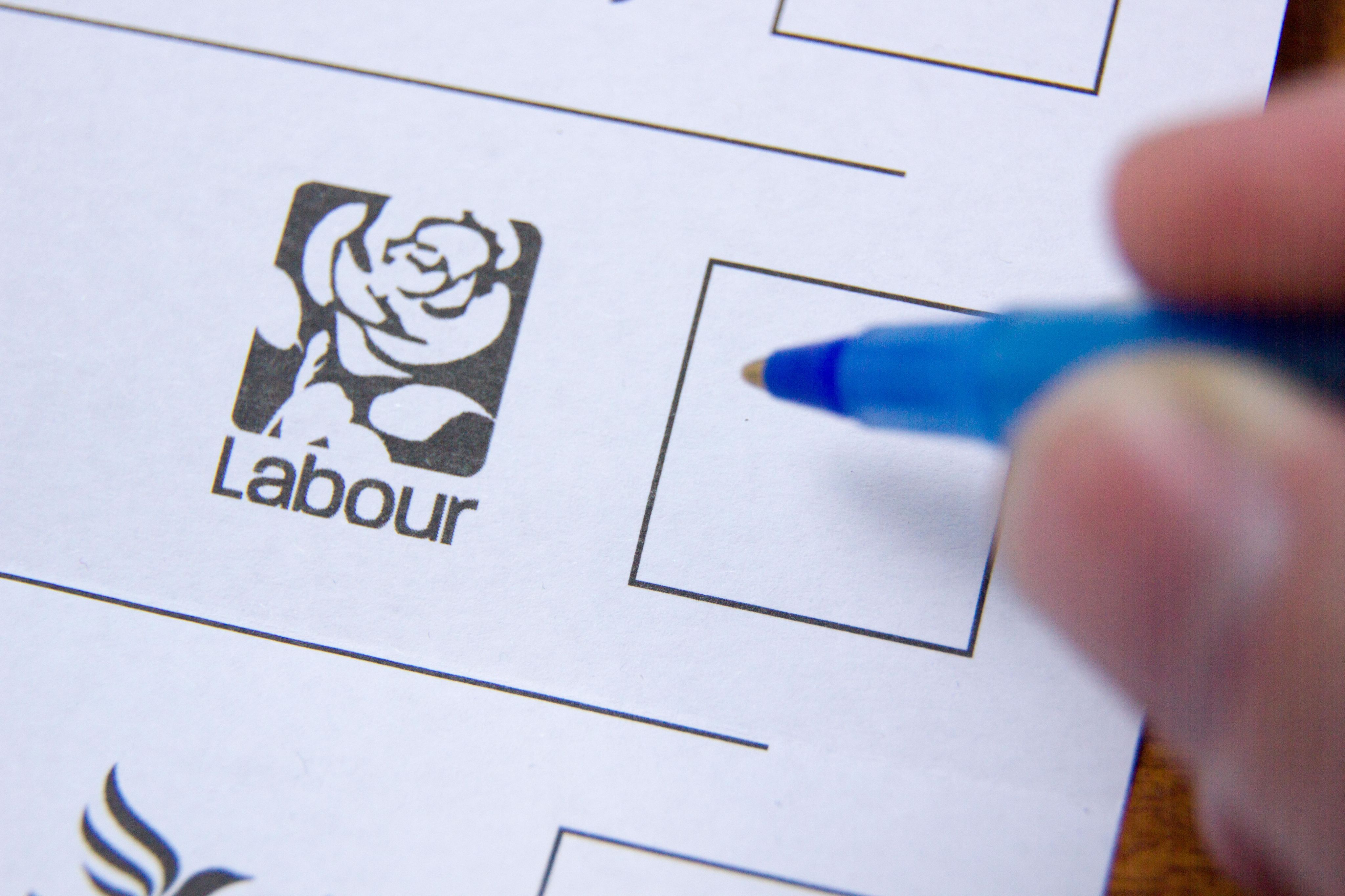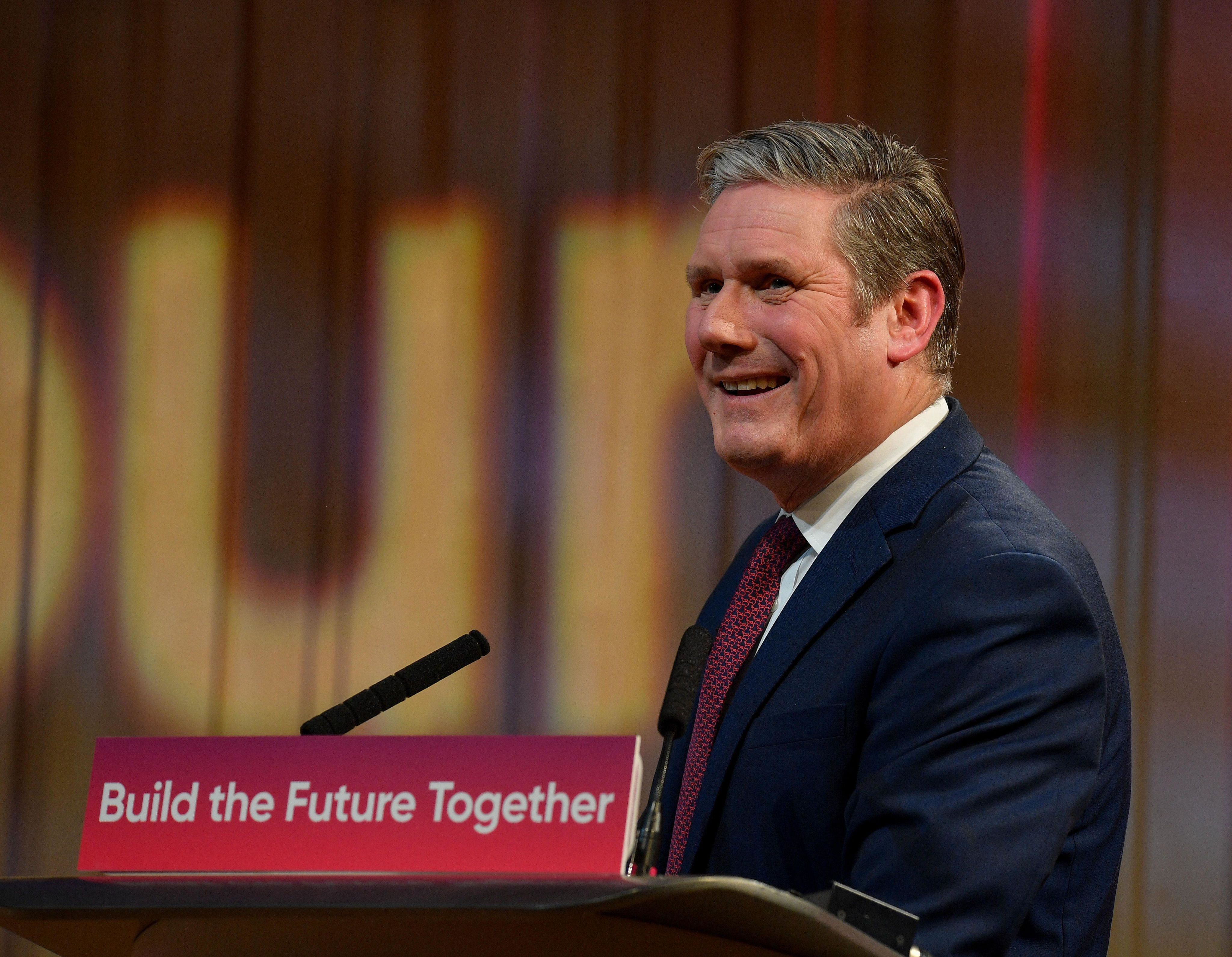Can Labour ever win the Red Wall back?
Daniel Hordon investigates whether Labour can ever win back the Red Wall.

The Labour party is currently on a mission to rebuild.
After the damning election result, change was needed. A new leader, new team, new policies and fresh approach were all key.
Over the last six months of investigating what went wrong for Labour I’ve also been trying to find out whether they’re getting back on track - whether the Red Wall is being rebuilt.
Across all of my interviews with Red Wall voters I asked them how they would vote if there were an election tomorrow. Four of my nine person focus group of Blyth Valley voters said they’d vote Labour if polling booths opened the next day, although it’s important to note that I first began these interviews in November 2021, and carried out the last in early May 2022 so the political context has shifted massively during these conversations.
For that reason I recently spoke to one of my first focus group members, Irene, again. In 2019 she voted Conservative for the first time. By November 2021 when we first spoke she had changed her mind and said she would vote for Labour, a decision she had stuck with when we spoke again May 2022.
From my conversation with Irene I sensed an unhappiness with Boris Johnson and the new Tory MP Ian Levy. But for Labour to win again they will most likely need to do more than rely on long-time former Labour voters being unhappy with the Conservative party.
One of the ways it has tried to do this is through its new leader, Keir Starmer.
Following a drawn-out Labour leadership campaign Keir Starmer beat Rebecca Long-Bailey and Lisa Nandy to become leader of the party. However his premiership most certainly didn’t get off to the start he would have wanted with an announcement video posted to social media at the height of the first coronavirus lockdown.
“His first task was to detoxify the Labour brand and rid himself of any suggestion that he’s anything like Jeremy Corbyn with him having been so comprehensively rejected by voters,” Rob Parsons, editor of the Northern Agenda political newsletter told me. When I asked him whether he thought Starmer had achieved this he replied, “I think he has”.
It’s the honour and privilege of my life to be elected as Leader of the Labour Party.
— Keir Starmer (@Keir_Starmer) April 4, 2020
I will lead this great party into a new era, with confidence and hope, so that when the time comes, we can serve our country again – in government. pic.twitter.com/F4X088FTYY
Of my focus group members, five of them, again at the time we spoke, said they liked Keir Starmer.
One of those was Eileen, a retired charity finance worker from Cramlington. “When I’ve seen him in parliament he comes over as being quite reasonable, well informed and that’s what I want. I quite like the guy”, she told me, caveating: “I would like to know more about what he would propose to do if he was in government.”
This has been one of the main criticisms of Starmer’s leadership so far. Rob Parsons told me: “I think you would still struggle really to pinpoint what Keir Starmer’s leadership of the Labour party is all about.”
“It feels to me a bit like Starmer’s main appeal is just that he isn’t Boris Johnson and I think maybe he’s counting on enough voters being disenchanted with the Conservatives that they switch. I don’t feel like he’s really successfully put forward a hugely positive vision yet that has really caught the public’s imagination.”
Seb Payne, Whitehall Editor of the Financial Times and author of Broken Heartlands however told me how he could understand why Labour hasn’t set out any clear policies just yet: “We are two years away from an election, what’s the point in setting out a policy direction now when it could all change, so I can understand their hesitancy there."
As Labour moves ever closer to an election, more people will be looking to them to come forward with some policies. Robert, a lorry driver from Blyth, told me Labour should be focusing on affordable housing and tax reform, while the environment came as a key priority for Eileen and Irene.
"I think you would still struggle really to pinpoint what Keir Starmer’s leadership of the Labour party is all about."
- Rob Parsons, Northern Agenda editor

But would it be ready to fight an election? Ria, a Blyth Valley CLP insider I spoke to in November 2021, believed not. “A lot of people who were some of the hardest working people have since left the party and CLP so there’s less people to go out and organise canvassing and door knocking”, they told me. When I questioned why people were leaving the party they told me it was due to people feeling demoralised.
And in Blyth Valley Labour is now on the back foot - no longer the incumbent with the money and campaigning power of the MP behind them. “We used to have Ronnie Campbell giving like nine or ten grand a year to pay rent on the building that we used to own which has now been sold so we don’t even have a physical building in the CLP to do organising out of. It’s pretty dire”, says Ria.
Despite this, Blyth Valley is currently tipped to go back to Labour at the next General Election. Pollsters Electoral Calculus predict an 85% chance of Blyth Valley going back red, as of May 9, 2022. Nationally they predict Labour winning 315 seats, just 11 short of a majority.
Martin Baxter, CEO of Electoral Calculus, told me this was a sign of first-time Tory voters returning to Labour. “There were three big reasons why the Conservatives won such a big majority in 2019. The popularity of Johnson, the fear that many people had about Jeremy Corbyn, and getting Brexit done.” says Martin. “Two and half of those have faded away. Getting Brexit done is no longer an issue, Jeremy Corbyn is no longer an issue, and Boris Johnson’s attraction has taken a beating since partygate. The Conservatives did worry at the time that these votes were being lent to them by traditional Labour voters and it’s looking like the debt is coming due.”
“I think we’ve turned a corner now”, one Sunderland Labour party activist told me based on their experience of canvassing ahead of the May 5 local elections.
Labour has set itself on a new path and distanced itself from the party of 2019, setting itself up for potential electoral success.
A win in 2024 isn’t an impossibility. Rob Ford, Professor of Political Science at the University of Manchester and co-author of the book The British General Election of 2019 explained to me how it’s very possible that Labour could win. “In terms of Starmer waving on the steps of Downing Street at some point after the next General Election, I think Labour are on a trajectory for that,” he told me.
Ford added: “They are a lot more popular than the Tory incumbent for the first time since they went into opposition. They are rated as the better party on practically every issue that matters to Conservative voters for the first time since they went into opposition and, in fact, the first time since quite a while before that. And they now tie the Conservatives on the issue of economic management with a lot of the worst economic news still to come.
“Put all that together and it’s quite easy to see a future in which Labour is the largest party in a hung parliament, and it’s not impossible to see Labour winning a majority.”
